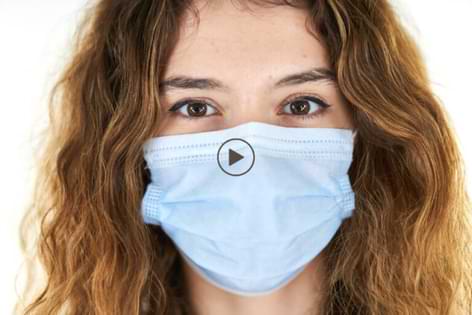
Vitamin D: A Powerful Ally Against COVID-19 – Latest Findings and Recommendations
Source: The Spanish Society of Geriatrics and Gerontology Position Statement (February 8, 2021)
Lifestyle Medicine Update (April 14, 2021)
Introduction:
In the relentless battle against COVID-19, researchers continue to uncover the crucial role of vitamin D in preventing severe outcomes and mortality. Recent developments, including a groundbreaking position statement from the Spanish Society of Geriatrics and Gerontologists, underscore the significance of this nutrient in our defence against the virus.
Unlocking the Vitamin D and COVID-19 Connection
The relationship between vitamin D levels and COVID-19 severity has been a topic of intense study. On February 8, 2021, the Spanish Society of Geriatrics and Gerontologists released a position statement titled “Vitamin D Supplementation for the Prevention and Treatment of COVID-19.” This statement highlights the alarming impact of COVID-19 on older adults and emphasizes the potential of vitamin D as a protective shield against the virus’s dire consequences.
COVID-19 often unleashes severe respiratory symptoms, particularly in older individuals, leading to a higher rate of morbidity and mortality. With no definitive treatment for the virus, healthcare professionals have turned to various strategies to combat its effects. These include corticosteroid drugs and biological immunomodulators to address the inflammatory phase of the disease.
The Role of Vitamin D: A Key Player in Immunity
Central to this position statement is the assertion that vitamin D plays a vital role in our immune response. Most immune cells, including B-lymphocytes, T-lymphocytes, monocytes, macrophages, and dendritic cells, boast vitamin D receptors. When these immune cells are stimulated by vitamin D, they unleash powerful anti-inflammatory effects that can help quell the dreaded cytokine storm—a primary contributor to mortality in severe COVID-19 cases.
Additionally, vitamin D is essential for the maturation and proper function of immune cells, such as dendritic and T-T-reg cells, which are pivotal in combating viral and other infections. Several studies have hinted at the potential of vitamin D treatment in the prevention and treatment of COVID-19.
Promising Results: Vitamin D Supplementation and COVID-19
Preliminary studies have already produced promising results regarding vitamin D supplementation in hospitalized COVID-19 patients. A meta-analysis showcased a lower mortality rate (10.6%) among patients receiving vitamin D supplements, compared to controls (23.9%). Within this meta-analysis, two retrospective studies indicated decreased clinical symptoms in patients treated with vitamin D, while a third demonstrated a reduced rate of intensive care unit admissions for COVID-19 patients who received vitamin D supplements. Moreover, a fourth study highlighted a significant decrease in serum fibrinogen levels in COVID-19 patients following vitamin D supplementation, suggesting a lower risk of abnormal blood clot formation and blood vessel inflammation.
A separate study, which we covered last week, revealed that patients with low vitamin D levels who were administered vitamin D supplements within a month before contracting COVID-19 exhibited milder symptoms, better recovery, and reduced mortality risk compared to patients with low vitamin D levels who did not receive supplementation.
Unlocking the Optimal Vitamin D Levels
Studies have consistently shown that individuals with blood vitamin D levels ranging from 80 to 140 nmol/L (30-56 ng/mL) are at a significantly lower risk of developing severe infections. Therefore, maintaining these optimal levels becomes imperative in our defence against COVID-19.
To this end, the Spanish Society of Geriatrics and Gerontologists has devised recommendations for vitamin D supplementation tailored to the patient’s vitamin D blood level. The protocol becomes more aggressive as blood levels decrease, with the aim of swiftly improving vitamin D nutritional status to enhance immune competence and prevent life-threatening cytokine storms.
Vitamin D Supplementation Protocol
- Blood Level Less than 10 ng/mL (25 nmol/L): 8 weeks of 7,000 IU/d, followed by 3,500 IU/d for 8 weeks.
- Blood Levels between 11-20 ng/mL (27.5 – 50 nmol/L): 2 weeks of 7,000 IU/d, then 3,500 IU/d for 14 weeks.
- Blood Levels between 21-29 ng/mL (52.5 – 72.5 nmol/L): 4 weeks of 7,000 IU/d, then 3,500 IU/d for 12 weeks.
- Blood Levels between 30 – 40 ng/mL (75 – 100 nmol/L): Single Dose of 50,000 IU, followed by 3,500 IU/d for 12 weeks.
- Blood Level between 41-60 ng/mL (102.5 – 150 nmol/L): 25,000 IU biweekly for 12 weeks.
In Conclusion
The evolving body of evidence underscores the critical role of vitamin D in fortifying our immunity against COVID-19. With promising results from studies and a clear protocol for supplementation, vitamin D emerges as a powerful ally in the fight against this relentless adversary.
References:
- [Spanish Society of Geriatrics and Gerontology Position Statement](https://www.sciencedirect.com/science/article/pii/S0211139X21000044?via%3Dihub)
Dr. Meschino

Dr. James Meschino
ABOUT THE AUTHOR
Dr. James Meschino, DC, MS, ROHP, is an educator, author, and researcher having lectured to thousands of healthcare professionals across North America. He holds a Master’s Degree in Science with specialties in human nutrition and biology and is recognized as an expert in the field of nutrition, anti-aging, fitness, and wellness as well as the author of numerous books.


